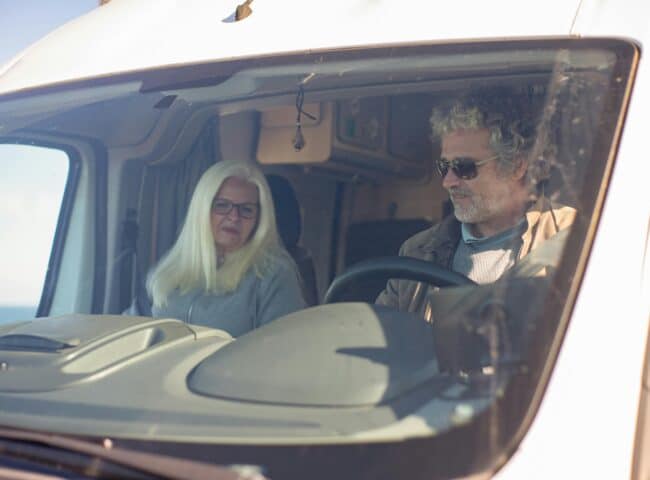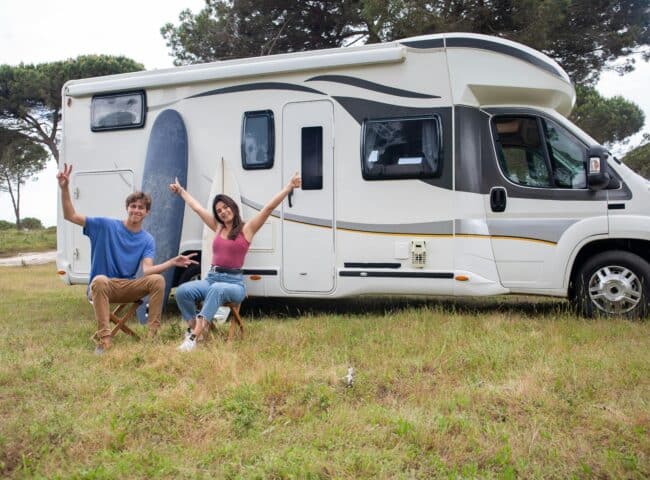When you’re cruising in your recreational vehicle (RV), an unexpected breakdown can stop you in your tracks. An RV warranty is your safety net, but what does an RV warranty cover? At its core, an RV warranty covers mechanical and electrical failures, protecting key components like your engine, transmission, and HVAC system. It’s a distinct plan from RV insurance, which handles accident-related damages. Our in-depth look will guide you through the types of warranties available, what’s typically included and excluded, and how you can navigate the landscape of RV warranties to find the right one for you.
Key Takeaways
- RV warranties protect against financial costs due to mechanical, electrical, and structural repairs but differ from RV insurance which covers accident damage and liability.
- Extended RV warranties offer customizable coverage beyond the manufacturer’s warranty and can include additional benefits like roadside assistance, though they exclude regular maintenance, wear items, and collision damages.
- Choosing the correct RV warranty involves evaluating factors such as coverage level, cost, provider reliability, and your personal risk tolerance, with the aim of offsetting potential expensive repair costs.
The Fundamentals of RV Warranties
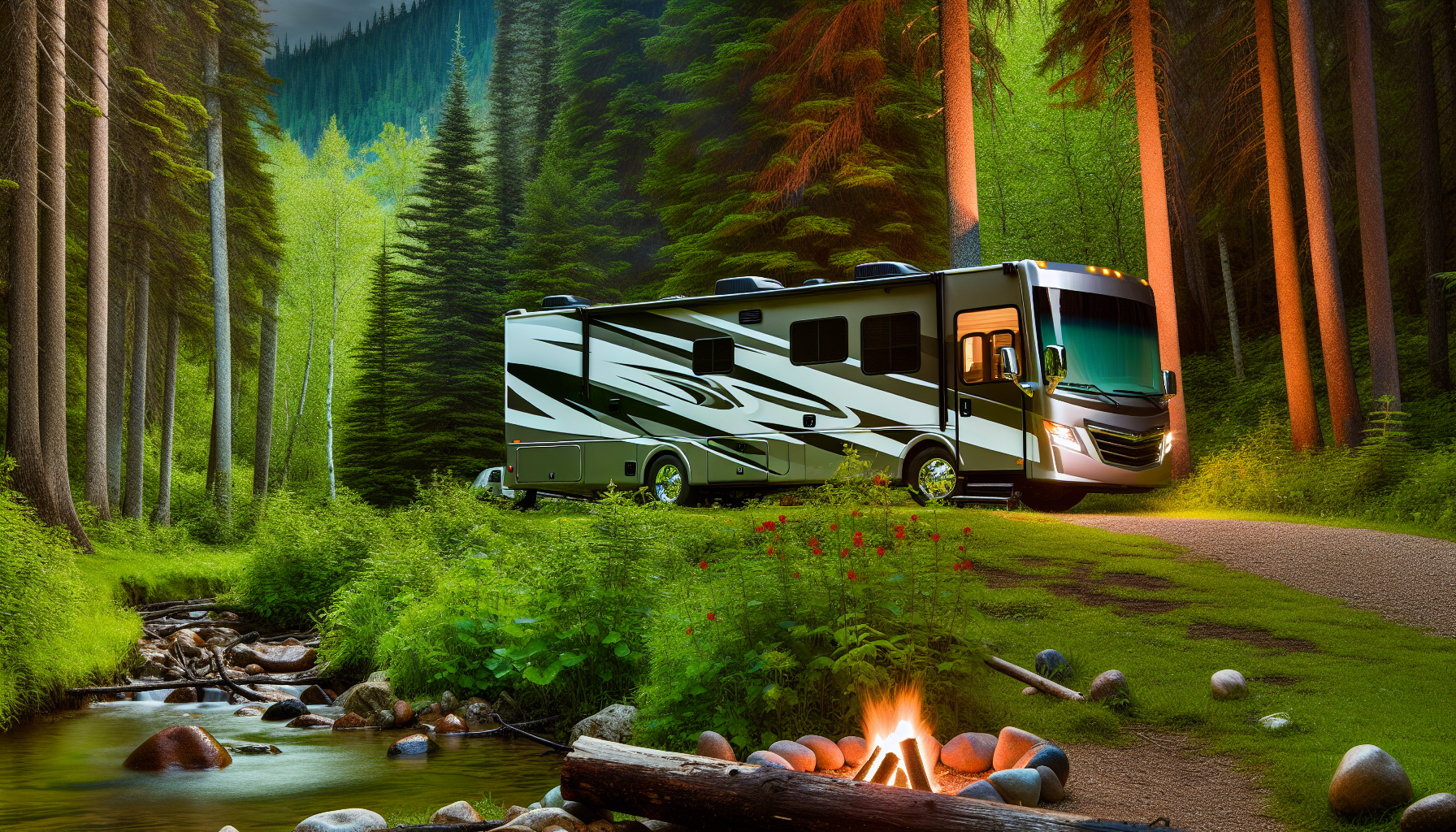
Think of an RV warranty as a bodyguard for your home on wheels. These protection plans serve to shield you from the financial burden of minor and major repairs, covering mechanical and electrical components, and structural elements. Manufacturer warranties form the first line of defense, offering coverage for most components of your RV, particularly issues related to design flaws. But what happens when the manufacturer’s warranty expires? That’s where extended RV warranties come into play.
Extended RV warranties, as the name suggests, provide coverage beyond the manufacturer’s warranty. This additional protection is available for purchase at the time of your RV purchase or at any point during your ownership, offering extended peace of mind. Keep in mind that these extended warranties aren’t free, yet their benefits in terms of prolonged and deeper coverage can offset the cost.
But don’t forget, an RV warranty is not the same as RV insurance. While the warranty covers mechanical and electrical failures, RV insurance steps in to handle accidents, liability, and other unforeseen incidents. Appreciating these differences is key to achieving complete protection for your RV.
Types of RV Warranties
If you’re contemplating an RV warranty, you might wonder where to begin. There are three main types of RV warranties to choose from: manufacturer warranties, extended warranties, and third-party warranties.
Manufacturer warranties are essentially the factory warranty that comes with your RV. Offered by the RV maker, these warranties cover certain defects and issues related to workmanship for a specified period. While they provide fundamental protection, their coverage period can be limited.
On the other hand, extended warranties provide additional protection plans that extend your coverage beyond the original manufacturer warranty term. This means even after your manufacturer’s warranty has expired, you can still have warranty coverage.
Finally, third-party warranties are offered by companies other than the original manufacturer or dealer. Companies such as Wholesale Warranties and Good Sam offer these warranties, and they might provide similar coverage to dealership warranties at a potentially more cost-effective price.
Warranty vs. Insurance
While RV warranties and insurance may seem similar, they serve different purposes. RV warranties are designed to cover mechanical failures and breakdowns. This means that if your air conditioner or refrigerator breaks down, your warranty coverage can step in to cover the repair costs.
On the contrary, RV insurance is designed to protect against damages from accidents, theft, fires, and liability issues. This includes coverage for:
- Automotive features of your RV
- The living area of your RV
- Personal belongings
- Protection against uninsured motorists
RV insurance provides comprehensive coverage to ensure that you are protected in various situations.
While insurance is mandatory for financed motorhomes and towable RVs, warranties are optional service contracts focused on mechanical failures. Understanding this distinction is crucial to ensuring you have the right protections in place for your RV.
Components Covered by RV Warranties
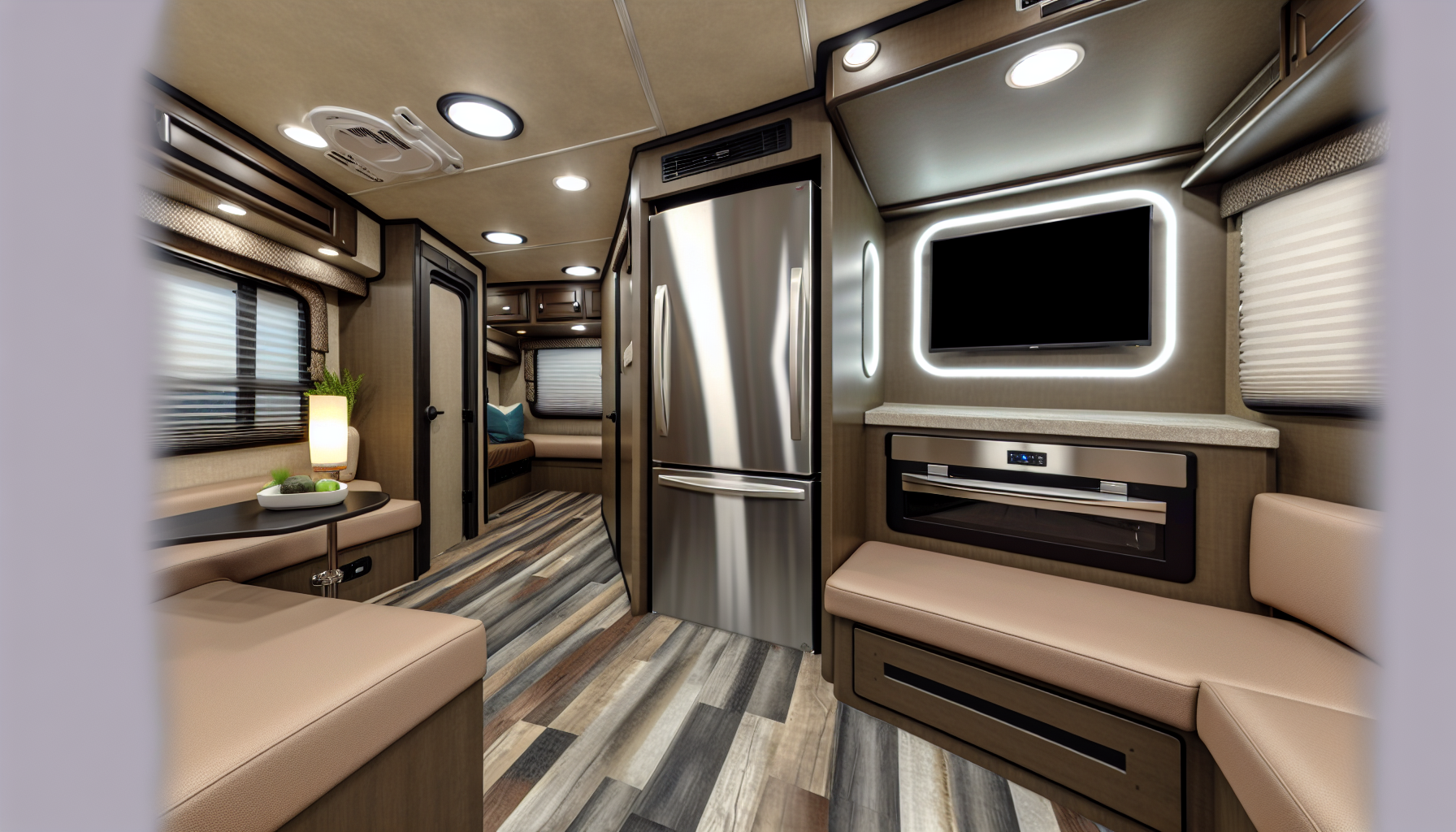
Knowing what’s covered by an RV warranty is crucial to avoiding unexpected repair costs. RV warranties primarily cover mechanical and electrical breakdowns that aren’t collision-related. This includes components like slide-outs, furnaces, air conditioners, and appliances. More comprehensive RV warranty coverage typically includes components like RV steps, awning motors, generators, water pumps, and water heaters.
In addition to these components, larger items such as slide-outs, leveling jacks, and major powertrain elements like engines and transmissions are also protected under RV warranties. Some RV extended warranties even offer additional protections against consequential damages and may offer benefits like roadside assistance and towing.
It’s also important to understand the difference between exclusionary policies and inclusionary policies. Exclusionary policies offer almost all-inclusive protection, covering nearly every component except for those specifically listed as exclusions. In contrast, inclusionary policies only cover specific listed components.
Mechanical and Electrical Components
We’ll now examine the mechanical and electrical components generally included in RV warranties. Key mechanical components such as:
- generators
- water pumps
- water heaters
- major powertrain elements like engines and transmissions
are usually covered.
When it comes to electrical components, warranties usually extend to things like chassis air conditioning, appliances, entertainment systems, slide-out mechanisms, leveling systems, awning motors, and slide-out motors. Certain warranties may even cover the wear and tear on seals and gaskets, as well as specific parts such as LP gas systems, power steps, and roof/basement air conditioning units.
Bear in mind that repair costs can be substantial, especially for major components like:
- auxiliary generators
- transmissions
- engines
- A/C units
- refrigerators
- electrical systems
This is where RV warranty coverage, such as an exclusionary RV warranty, can significantly lessen the financial impact of rv repairs.
Structural Elements
In addition to mechanical and electrical components, RV warranties also generally cover the structural components of the vehicle. This includes specific elements such as:
- windows
- skylights
- walls
- floors
- exterior structures like sides, roofs, undercarriages, and axles.
Knowing which structural elements are covered by your warranty can offer reassurance and help avoid unexpected expenses later on.
What’s Not Covered by RV Warranties
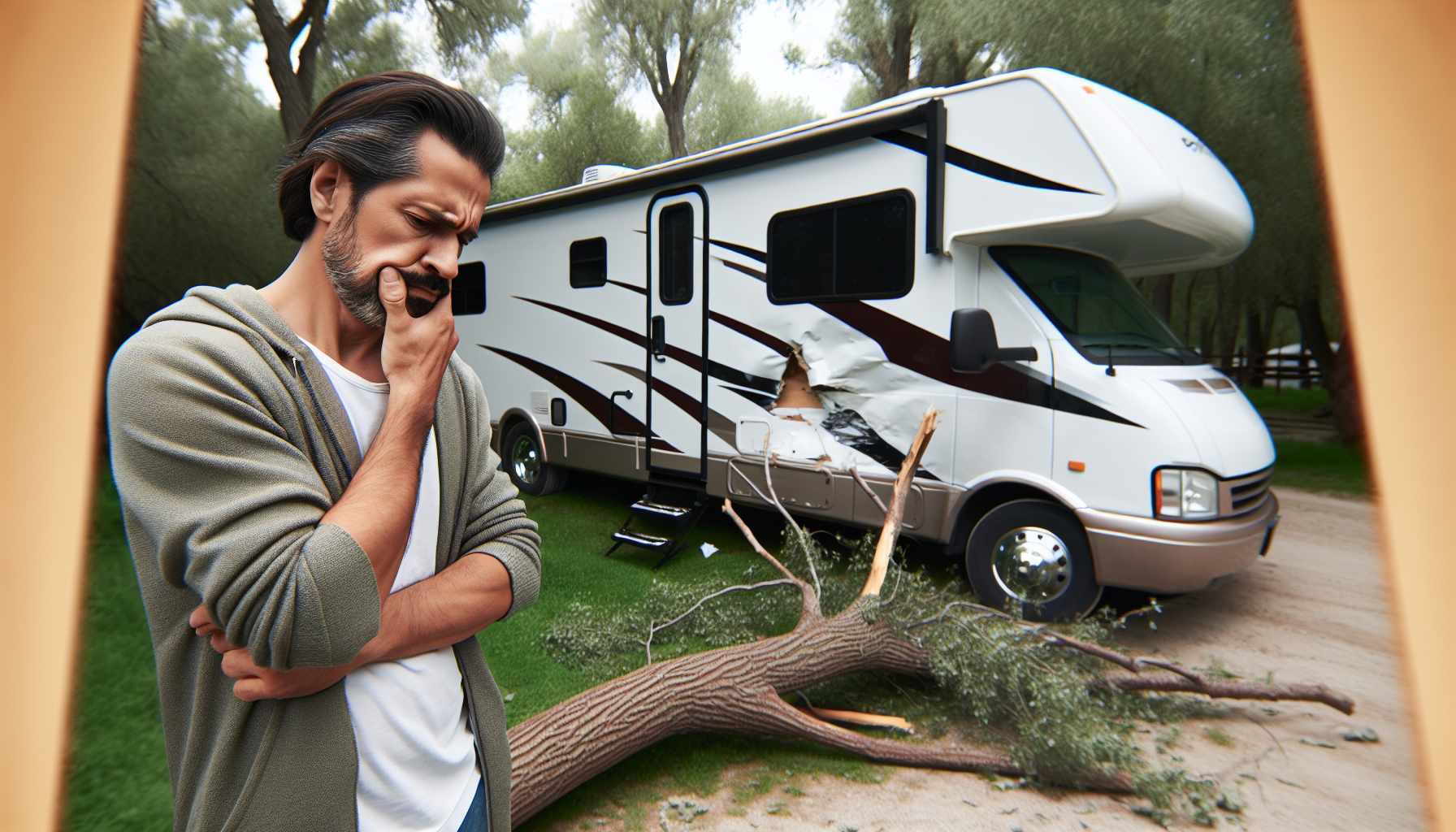
It’s equally crucial to understand not only what your RV warranty covers, but also what it doesn’t. Typically, RV warranties exclude coverage for items that fail due to owner modifications or improper use. This means that if you install an aftermarket part that causes a mechanical failure, your warranty won’t cover the resulting repair costs.
Furthermore, an RV extended warranty does not cover:
- Regular servicing and maintenance tasks
- Collision-related damages, including damages from accidents or collisions
- Oil changes
- Tire rotations
- Certain RV components such as windows, flooring, and upholstery
Lastly, bear in mind that only repairs carried out by authorized service technicians qualify for coverage under an RV warranty. If you perform the repairs yourself, these costs will not be eligible for coverage.
Accident Damage and Neglect
Accident damage is a major exception when it comes to RV warranty coverage. Damages resulting from accidents, including collisions and roll-overs, are typically not covered under RV warranties. These instances are usually handled by your RV insurance policy instead.
In addition, damages resulting from neglectful actions, such as operating the RV on unmaintained roads, racing, or off-road use, are also not covered under the warranty. Proper maintenance and intended use of your RV are critical to maintain the validity of your warranty.
Regular Maintenance and Wear Items
Routine maintenance tasks and wear items are other areas where RV warranties typically don’t offer coverage. This includes things like:
- oil and filter changes for RV generators
- suspension alignments
- wheel balances
- engine tune-ups
Furthermore, components considered regular wear items, including:
- tires
- batteries
- wheels
- rims
- wiper blades
are not covered under RV warranties. These are items that the owner is expected to replace as part of routine maintenance. Failures due to lack of servicing or improper maintenance, or damage resulting from the use of contaminated or degraded fuels or other fluids, can also lead to denial of warranty claims.
Evaluating RV Warranty Options
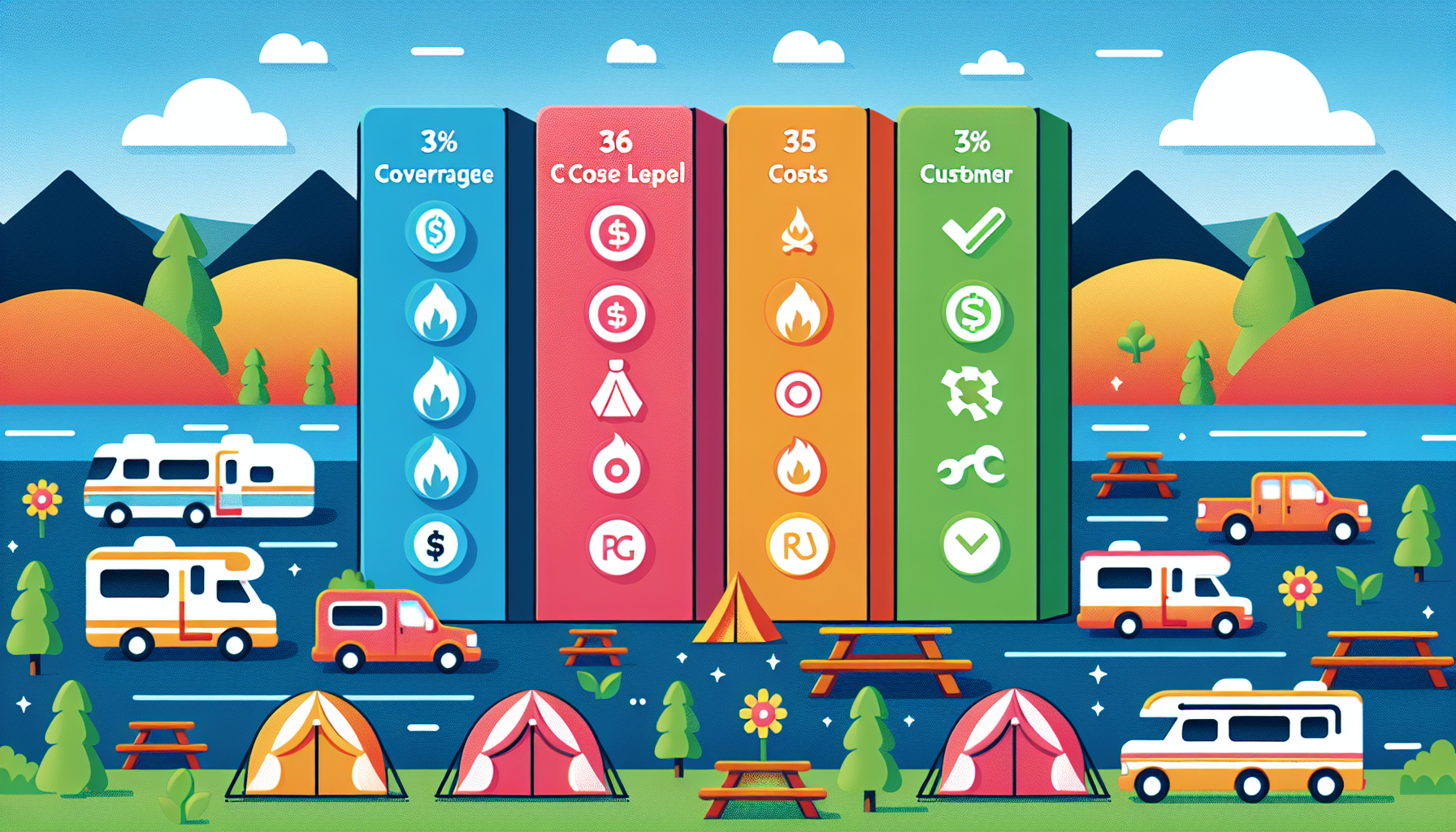
Selecting the appropriate RV warranty requires a comparison of various providers and policies, perusal of reviews, and solicitation of recommendations. You’ll want to consider factors such as the level of coverage, cost, and terms of the warranty.
When comparing policies, consider whether an exclusionary policy or inclusionary policy is right for you. An exclusionary policy offers almost all-inclusive protection, covering nearly every component except for those specifically listed as exclusions. In contrast, an inclusionary policy only covers specific listed components.
It’s also noteworthy that paying in full upfront is an option with most warranty providers, which can lower the total cost of the warranty. Additionally, look for warranties that are transferable, as this can increase your RV’s resale value if you decide to sell it in the future.
Comparing Providers and Policies
As you consider your choices, it’s vital to compare various warranty providers and their policies. Some options to consider are:
- America’s RV Warranty, which offers multiple levels of coverage, from coach-only to deluxe exclusionary plans, all backed by an A-rated insurance company.
- Good Sam, which offers flexible payment options and additional benefits like travel expense reimbursement and 24/7 claims assistance.
- Eagle Vision, which also offers flexible payment options and additional benefits like travel expense reimbursement and 24/7 claims assistance.
Comparing these providers will help you make an informed decision about which warranty is best for you.
However, keep in mind that certain RV warranty policies may limit where repairs can be done or vary in coverage periods for different RV parts. The costs of warranty plans also vary widely and are influenced by factors such as coverage level and the RV’s age, with rv dealer policies often being higher priced than those purchased directly from warranty companies or third-party providers.
Given the range of policy options and the need for thorough comparison, it’s advised to:
- Obtain multiple quotes
- Understand the differences in terms
- Consider the standards upheld by regulated industry options like the Good Sam Extended Service Plan.
Reading Reviews and Seeking Recommendations
Beyond comparing providers and policies, it’s also a good idea to read reviews on forums and online platforms when assessing RV warranty providers. The Better Business Bureau accreditation can serve as a reliable indicator of a warranty provider’s consumer service quality and reliability.
Yet, it’s essential to acknowledge the range of reviews, necessitating thorough research into the provider’s financial solidity and customer service reputation. Look for providers that offer good communication and round-the-clock customer support, as these are indicators of superior service within the RV warranty sector.
The Costs and Benefits of Extended RV Warranties
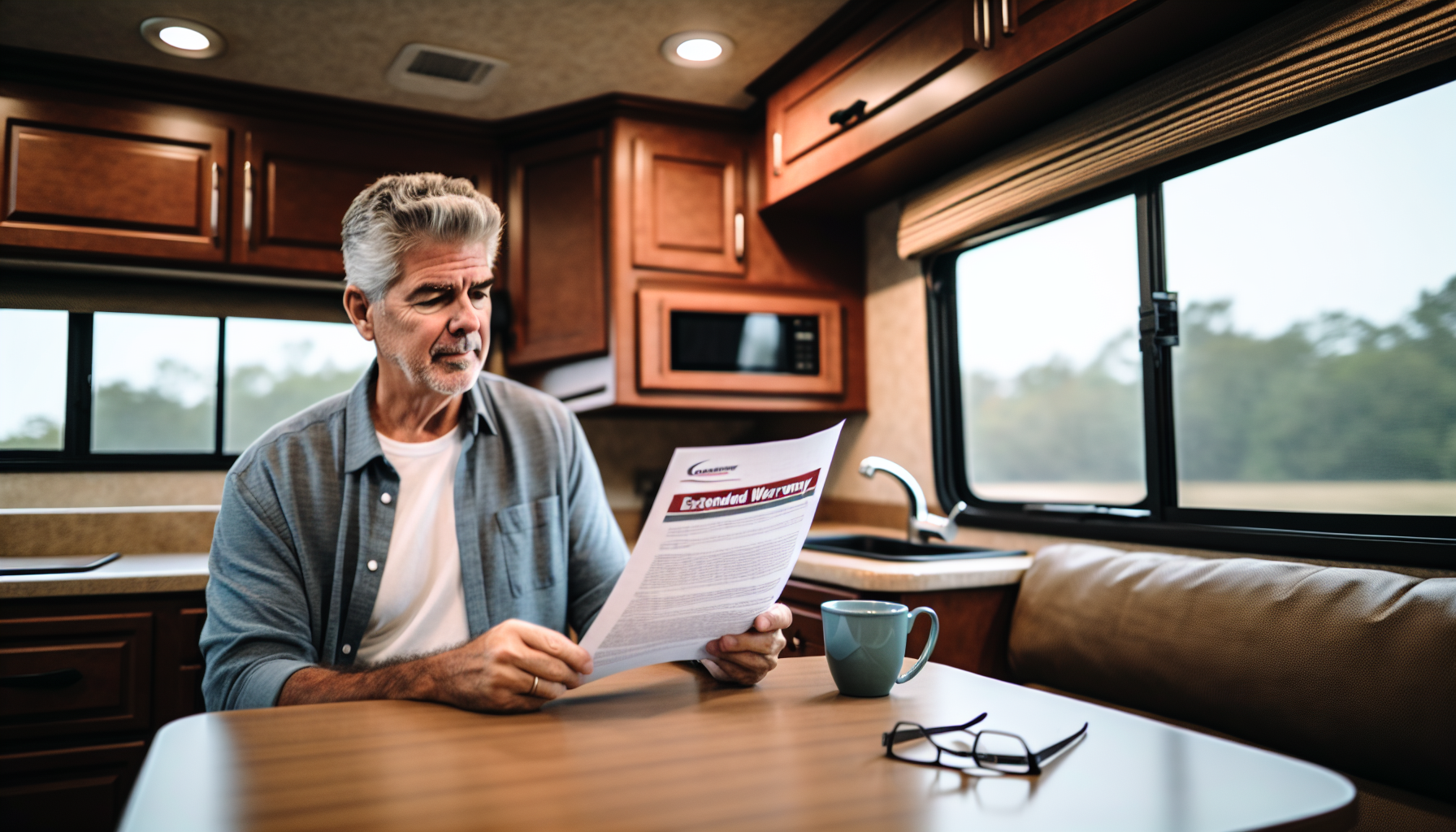
While extended RV warranties may require considerable investment, they also present numerous advantages. These warranties serve as a safeguard against mechanical failures and provide additional benefits such as:
- Travel reimbursements during repairs
- Extended protection beyond the manufacturer’s warranty
- Financial risk management
- Peace of mind for owners
These advantages add value and peace of mind for RV owners, especially when considering a used rv.
The cost of extended RV warranties varies depending on:
- RV type
- Age
- Mileage
- Desired level of coverage
These costs can often be financed through flexible monthly payments instead of a large upfront cost, making them more accessible for many RV owners.
Extended RV warranties can be tailored to cover a range of mechanical systems and structural elements, with comprehensiveness directly affecting the plan’s cost. While there’s a possibility that the coverage may not be fully utilized, warranties might be more cost-effective than relying on personal savings for unexpected repairs, especially considering the likelihood of major repairs occurring by the eighth year of ownership.
Estimating Repair Costs
You should be aware that RV repair costs can be hefty, as hourly rates vary from $85 to $200. This makes extended warranties a valuable investment for some owners. The cost of an extended RV warranty is likely to be higher for older RVs due to the increased likelihood of mechanical failures or breakdowns.
Certain repairs can be extremely costly. For instance, fuel injection pump repairs on diesel motorhomes, suspension repairs on travel trailers can range between $1,000 to $3,000, while a leveling system repair can cost anywhere from $800 to $12,000.
Assessing Your Risk Tolerance
Your personal risk tolerance is another important consideration when deciding on an extended warranty. An RV extended warranty allows owners to have confidence knowing that major repair expenses will be covered.
Your comfort level with financial risks and desire for financial peace of mind will heavily influence your decision to purchase an RV extended warranty. Some RV owners may opt to self-insure by setting aside funds for repairs, but this approach may not provide the same level of financial security and peace of mind as an extended warranty. This is particularly true for full-time RVers, as warranties offer additional peace of mind and the flexibility of choosing repair facilities, including access to mobile repair services.
How to File an RV Warranty Claim
Being prepared to file an RV warranty claim in the event of an unexpected mechanical breakdown can save you both time and stress. Coverage for mechanical breakdowns under an RV warranty typically includes both parts and labor costs once the RV owner pays the deductible.
Most RV warranty plans charge deductibles per visit, and opting for a lower deductible can reduce your out-of-pocket expenses for repairs. Furthermore, RV warranties generally allow repairs to be made at any licensed repair facility or by a mobile mechanic in the United States or Canada, providing convenience and flexibility for RV owners.
To file an RV extended warranty claim, follow these steps:
- Verify that the issue is covered by your warranty.
- Take your RV to a licensed repair shop for diagnostics.
- Contact your warranty company for pre-authorization.
- Proceed with the approved repairs.
Summary
In summary, RV warranties offer a valuable layer of protection against unexpected mechanical failures and breakdowns. Whether you opt for a manufacturer warranty, an extended warranty, or a third-party warranty, understanding what’s covered and what’s not can save you a lot of headaches and unexpected expenses down the line.
Remember, while warranties cover mechanical and electrical breakdowns, they do not cover accident damage, neglect, and regular maintenance tasks. Be aware of these exclusions and consider your personal comfort level with financial risks when deciding on an extended warranty. Ultimately, the right warranty can offer peace of mind and financial protection, letting you enjoy your adventures on the open road with confidence.
Frequently Asked Questions
Do RV extended warranties cover water damage?
RV extended warranties do not typically cover water damage, as they are designed to cover the costs of repairs for covered items, not damage caused by those items such as accidents or weather.
What is not covered under extended warranty?
Normal wear and tear, improper installation, improper usage, damage from natural disasters, long-term environmental damage, preexisting damage, routine maintenance, wear items such as tires, brakes or wiper blades, collision damage, and damage resulting from lack of maintenance or abuse are not covered under extended warranty.
What will void my RV warranty?
Using your RV in a way it’s not meant to be used could void your warranty, as warranties typically only cover mechanical and electrical components, not maintenance, collision damage, cosmetic items, or upgrades.
What is the difference between an RV warranty and RV insurance?
The main difference between an RV warranty and RV insurance is that the warranty covers mechanical failures and breakdowns, while insurance protects against accidents, theft, fires, and liability issues.
What does an RV warranty cover?
An RV warranty primarily covers mechanical and electrical breakdowns, including components like slide-outs, furnaces, air conditioners, and appliances. It does not cover collision-related damage.


